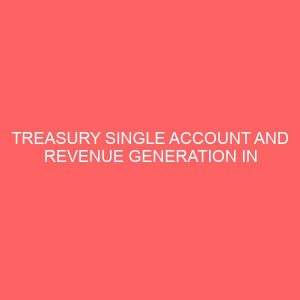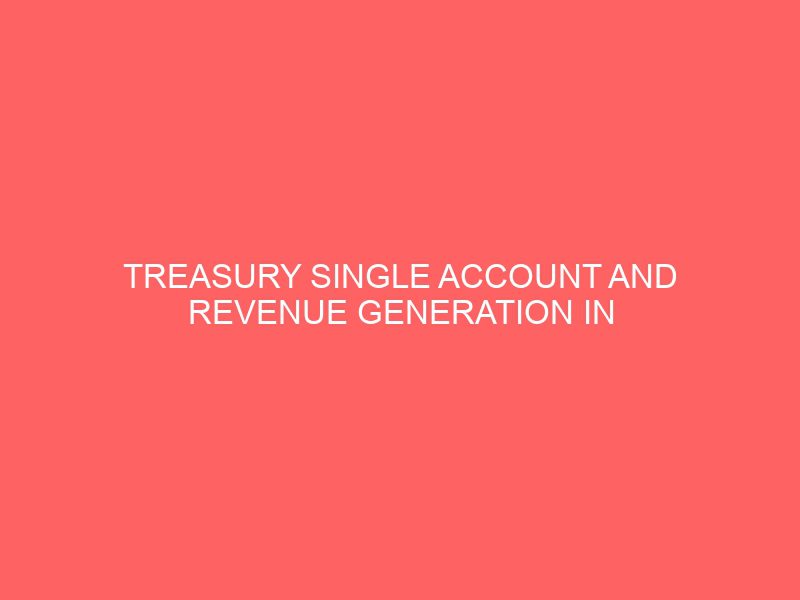Description
Treasury single account and revenue generation in a developing economy – the Nigerian experience (2012 – 2020).
Abstract
The Implementation of the Treasury Single Account in 2015 by the present administration in Government with the intention to control financial management, and block loopholes and leakages of financial management and resources of the government. Treasury Single Account could be described as part of the Economic Reform program of the Federal Republic of Nigeria to facilitate a unified structure of government bank accounts for all government transactions. The researcher used an analytical research design in building up this project work. In view of the research design, paired sample t-test was used as the data analysis technique with the help of SPSS program (version 19) paired sample t-test is a statistical procedure used to determine whether the mean difference between two sets of observations is zero. The study empirically shows the extent to which Treasury Single Account has improved federally collected revenue and gross domestic product and the benefits the government derived from implementing Treasury Single Account in Nigeria. Analysis shows that the implementation of Treasury Single Account has a negative and significant effect on federally collected revenue. However, further findings revealed that the Gross Domestic Product of the country significantly increased after the implementation of the Treasury Single Account.








Reviews
There are no reviews yet.